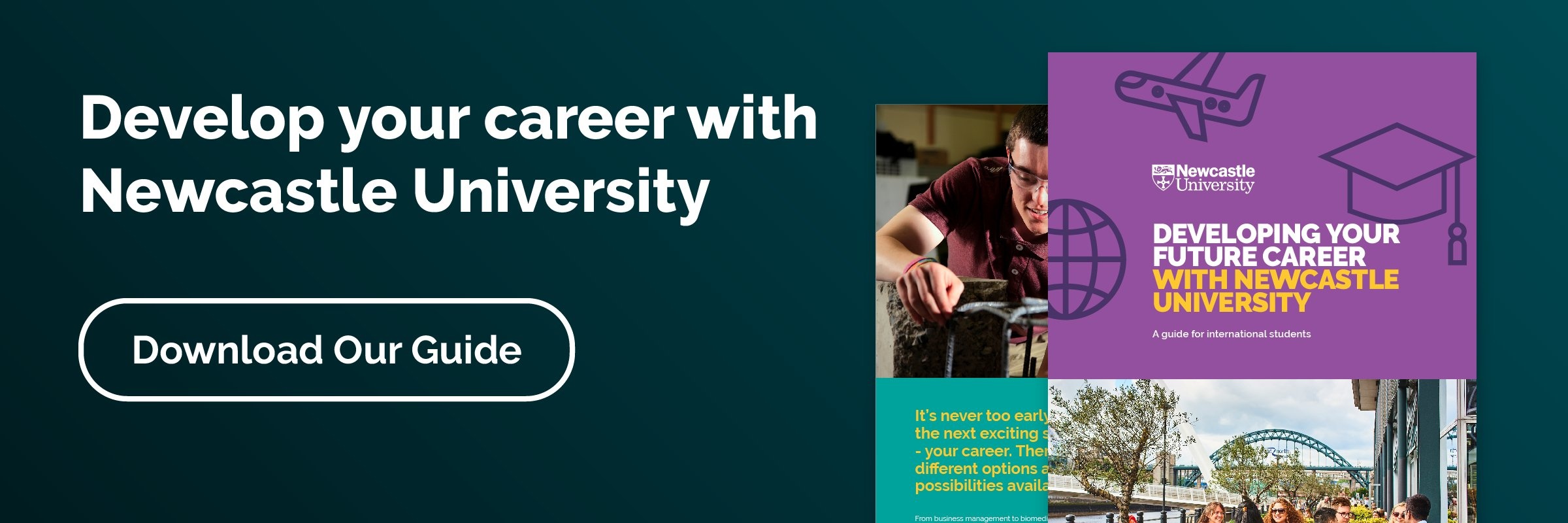As you approach the end of your undergraduate degree, it’s time to think about what comes next. During your studies, you may have realised that you’d like to stay in the UK once your degree is over and work in a graduate role. In this post, we’ll cover how to find a graduate job.

The visa you’ll need to work in the UK once you’re no longer a student
You might already know this but just as a reminder - you’ll need a certain kind of visa to get a job in the UK as an international student. It’s important to remember that rules and regulations for visas can change from time to time, so check this page for the latest visa information.
A Tier 4 visa will allow you to stay in the UK during your studies. As long as your course is longer than 12 months, you’ll then have a further four months after your course end date before you need to leave the UK.
At this point, to stay and work in the UK, you’ll need to apply for a Tier 2 visa. To receive this visa, you’ll need to have already found a graduate job and an employer willing to sponsor you. The maximum duration of your time in the UK will extend by five years and you’ll be able to have dependants stay with you.
If you have any questions regarding your visa and any pending applications, speak to the Newcastle University Visa Support Team. They can offer helpful advice so that you receive the visa you need to stay and work here.
Tips for finding a graduate job
Creating a CV and practising interviews
Before you can have your visa application accepted, you need to find a suitable graduate job. Newcastle University provides a careers service that helps international students, like you, to write CVs, practice interviews and plan their next step.
The advice that our careers service offers will give you the best chance of finding the right graduate job. There’s a lot of competition for places on graduate schemes and you’ll find a lot of other candidates going for the same jobs.
This is why it’s so important that your CV is as good as possible and you’ve had practice interviews so you’re prepared for any questions you might be asked. For your CV, here are a few basic things to include:
- contact details
- current visa situation
- education history
- any previous work experience that’s relevant
- relevant skills
- a personal statement that shows why you’re right for that role
We’ve found a great article covering tips on how to write a successful CV.
Job interviews aren’t anything to be afraid of but you should still make sure you’re prepared. We have an interview simulator available for students and graduates that allows them to practise their answers to common questions.
Where to find a graduate job
The first thing we’d recommend you do is to create a LinkedIn account if you don’t already have one. Upload a recent photo that’s professional in style - not a selfie from a meal with friends.
Next, connect with friends, students on your course and anyone that could influence your career in a positive way.
If you’re not familiar with LinkedIn, yet, think of it as the business equivalent of Facebook.
LinkedIn is the first place that recruiters in the UK usually check when they’re considering you for a role. Include all of the information that’s already on your CV and follow industry experts. This shows you’re passionate about your chosen career.
Once your LinkedIn profile is complete, it’s time to start looking for specific roles that interest you. There are lots of different websites where you can browse and apply for graduate jobs, including:
- Prospects - search graduate jobs by type of work, salary and location to find the right role to suit you.
- Indeed - create personalised alerts so you’re the first to know when the perfect graduate job is posted.
- Milkround - search graduate jobs and internships by sector and explore roles in finance, media, marketing, engineering and more.
- Graduate Recruitment Bureau - if you’re not sure what you’re looking for, use GRB’s keyword tool to explore jobs that match your interests.
- My Career - Newcastle University’s own jobs and advice portal which students can still access for three years after they’ve graduated.
The websites we’ve mentioned above all allow you to search for jobs by location, industry, salary and title. Use these websites to find the exact role that’s perfect for you - don’t settle for a job you won’t absolutely love.
Applications are sometimes slow so don’t panic if you haven’t heard back straight away.
Plan your career path
Thinking about your future career is important to do even if you’ve not started at university yet. Deciding on what is your dream job should influence which degree course you choose. You don’t want to realise that the degree you have studied for isn’t valued highly by employers.
This is why it’s vital you plan ahead. To make things a little easier, download our guide to developing your career. It includes a checklist to help you work through your career plan, one stage at a time. We also know that many international students return home after they’ve graduated but that doesn’t mean we don’t still offer expert support to help them to do this.
It also covers the support international students receive from Newcastle University and testimonials from other students who have been in your position and are now highly successful after graduating. Download your free copy of the guide, now, using the link below.
